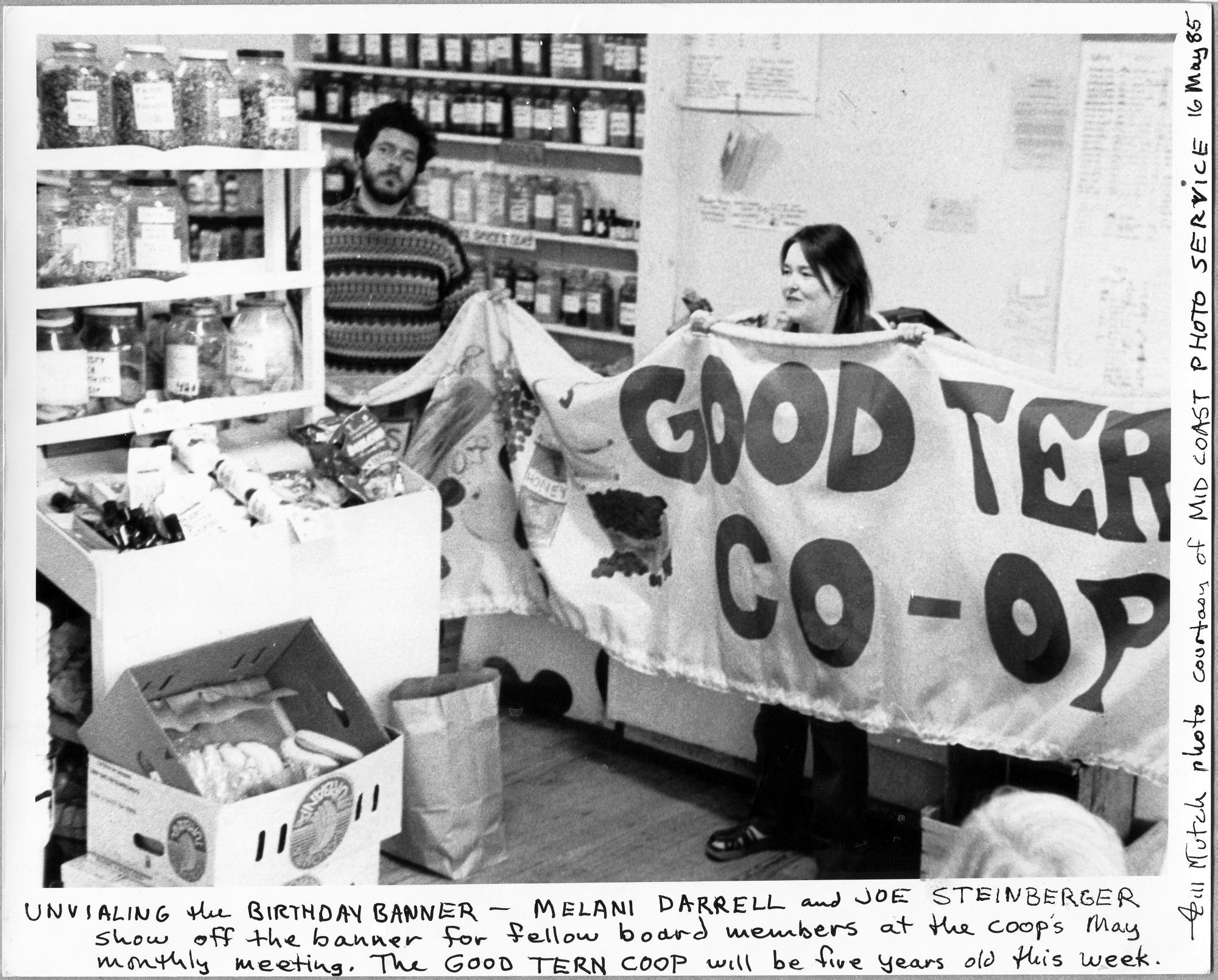The purpose of the Good Tern Co-op is to provide a high-quality, fairly priced, cooperatively owned and democratically controlled source of food and health products; to educate and inform members and the community on whole food, health and nutrition, food sources, and food preparation; and to help further cooperative principles, democracy, and self-reliance.
Everyone is welcome at the Good Tern Co-op!
Good Tern Natural Foods Co-op is a member-owned food and health store founded in 1980 to provide healthy food and wellness choices at reasonable prices for our local community. We offer a diverse range of products with a focus on local, organic, and healthy foods.
Member-owners have a voice in how the co-op is run by serving on the Board of Directors, attending board meetings, joining committees, participating in and voting on matters at the annual meeting, and sharing feedback with staff.
What is a cooperative?
A cooperative is defined in the Statement on the Cooperative Identity as
an autonomous association of persons united voluntarily to meet their common economic, social and cultural needs and aspirations through a jointly owned and democratically controlled enterprise.
Cooperatives are people-centered enterprises owned, controlled and run by and for their members to realize their common economic, social, and cultural needs and aspirations.
Cooperatives bring people together in a democratic and equal way. Whether the members are the customers, employees, users or residents, cooperatives are democratically managed by the 'one member, one vote' rule. Members share equal voting rights regardless of the amount of capital they put into the enterprise.
As businesses driven by values, not just profit, cooperatives share internationally agreed principles and act together to build a better world through cooperation. Putting fairness, equality and social justice at the heart of the enterprise, cooperatives around the world are allowing people to work together to create sustainable enterprises that generate long-term jobs and prosperity.
Cooperatives allow people to take control of their economic future and, because they are not owned by shareholders, the economic and social benefits of their activity stay in the communities where they are established. Profits generated are either reinvested in the enterprise or returned to the members.
The cooperative movement is far from being a marginal phenomenon, at least 12% of humanity is a cooperator of any of the 3 million cooperatives on earth.
Co-ops can be organized for the benefit of consumers, producers and workers and operate in almost all areas. For instance, consumer co-ops provide food, housing, health care (the original HMOs were co-ops), financial services (credit unions), and other goods and services. Producer co-ops most typically offer agricultural services for farmers - either inputs (e.g. seed, fertilizer, fencing) or processing and marketing (e.g. milk bottling and cheese production). Worker co-ops offer cab services, cleaning, manufacturing, food production, and more. Regardless of the goods and services provided, co-ops aim to meet their members' needs.
Good Tern Co-op is proud to be a member of National Co+op Grocers (NCG), a business services cooperative that helps retail food co-ops in the United States. Most of the co-ops affiliated with NCG are consumer cooperatives, which means that they are owned by the people who shop at the stores. Consumer members exercise their ownership by investing in co-op shares, patronizing the store, and electing a board of directors to hire, guide, and evaluate the general manager who runs day-to-day operations.
Want to learn more? Check out National Co+op Grocers and the International Cooperative Alliance.
Cooperatives are based on the values of self-help, self-responsibility, democracy, equality, equity, and solidarity. In the tradition of their founders, cooperative members believe in the ethical values of honesty, openness, social responsibility and caring for others.
The Seven Cooperative Principles
Seven Principles guide cooperative businesses all over the world. Learn more about the shared values and these seven principles at the International Cooperative Association website.
The seven principles are:
Voluntary and open membership
Democratic member control
Member economic participation
Autonomy and independence
Education, training, and information
Cooperation among cooperatives
Concern for community
Original art by Hallie Zillman, courtesy of Willie St. Co-op. Source: Food Co-op Initiative






